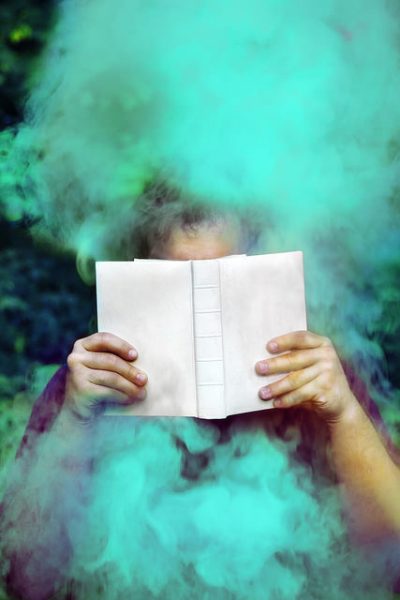In my view, the Writing 101 demand to “show, don’t tell” overstates the case. “A Soldier” uses showing and telling to great effect. How did you navigate showing and telling in this story? Can you say a bit about your decision to summarize, rather than directly dramatize, Aunt Aleya’s concluding speech?
I agree that the case is often overstated. The story took a big leap for me in terms of “show, don’t tell” in the way that the reader is not told directly that the grandfather has some form of dementia/Alzheimer’s. Usually I like to lay things out more directly for the reader. But it was necessary not to preface with the facts of his illness in order for his opening question ‘Is there a war?’ to have its necessary impact. The more I write, the more I understand that the reader is willing to extend a lot of trust towards the showing that doesn’t tell, but I still worry about taking that trust for granted.
As for the decision about Aunt Aleya’s speech, by that point in the story I was invested in Johnny’s perspective, and I thought her words were most impactful if he first misunderstood them and then needed his mother to correct his misunderstanding. Moments that heavy, I like to come at sideways, and let the reader fill in the unstated emotional blank, as it were. Coming at the most dramatic moments sideways can be a nice way to summarize and dramatize at once, because the event is being summarized but its effect is being dramatized.
What conventional writing rule, if any, are you most likely to break? What rule, if any, are you most keen to follow?
I don’t know exactly how conventional a writing rule this is, but I am most likely to write a story without much sensory description. Which is not to say that I am not remembering/imagining sounds, smells, etc. Sense memory is a part of my writing process, it just doesn’t come out on paper very much. The rule I am most likely to follow is simpler is better.
On your website, you state, “As an Iranian-American writer, I figure it is my job to write with love for Iranians and Americans.” What does writing with love look like to you?
Great question. I’m often guided by principles and ideas articulated by Martin Luther King, Jr., when I’m writing. He spoke of his vision of the beloved community. I think it’s possible for a writer to look honestly at the hard reality of the world and to still have an eye to the beloved community. So I want to write truthfully and at the same time, imagine a better world. Which sometimes walks the tightrope of sentimentality, but I’ve learned that a lot of art walks that tightrope. Dr. King also spoke of the much-needed transformation from a thing-oriented society to a person-oriented society. To that end, I try to remember that everyone in a story is a full person. Again, all of the real-world conflicts and struggles between people can still be true while keeping this in mind. That’s sometimes the whole challenge of a story for me.
“A Soldier” contains layers of defamiliarization. The triggering event, a shooting at a store, makes alien the everyday activity of going shopping and, by implication, other everyday activities. The grandfather’s belief that Uncle Jerry died at war puts another odd spin on what’s happened while revealing a deeper truth. How consciously did you draw on defamiliarization? Do you write with strong intention or do you work more organically?
In this case, I very consciously wanted to draw on the idea of the grandfather, due to his illness, becoming defamiliarized with the concept of a mass shooting. Perhaps years ago, when they first began to happen, we were all just as defamiliarized to them, and now we are all so familiarized that our schools practice how to deal with such a scenario. As a society, we’ve familiarized ourselves with these events, which I did not want to make a judgment on so much as I wanted to name the familiarization process directly. And to ask, what is the price of familiarization? Overall, a story feels like it is working for me when it has the right balance between intention and “organicness.” When I finish writing for the day, I don’t want to know what is going to happen in the story tomorrow, but I want to know what feeling I will try to draw from tomorrow.
Now for the important questions: What’s your favorite food? And what music would you most like to hear while eating it?
My favorite food is honestly anything my mother would make, particularly Iranian food. I could listen to anything while eating her food, but Miles Davis is probably best.



 The core workshop of SmokeLong Fitness is all in writing, so you can take part from anywhere at anytime. We are excited about creating a supportive, consistent and structured environment for flash writers to work on their craft in a community. We are thrilled and proud to say that our workshop participants have won, placed, or been listed in every major flash competition. Community works.
The core workshop of SmokeLong Fitness is all in writing, so you can take part from anywhere at anytime. We are excited about creating a supportive, consistent and structured environment for flash writers to work on their craft in a community. We are thrilled and proud to say that our workshop participants have won, placed, or been listed in every major flash competition. Community works.